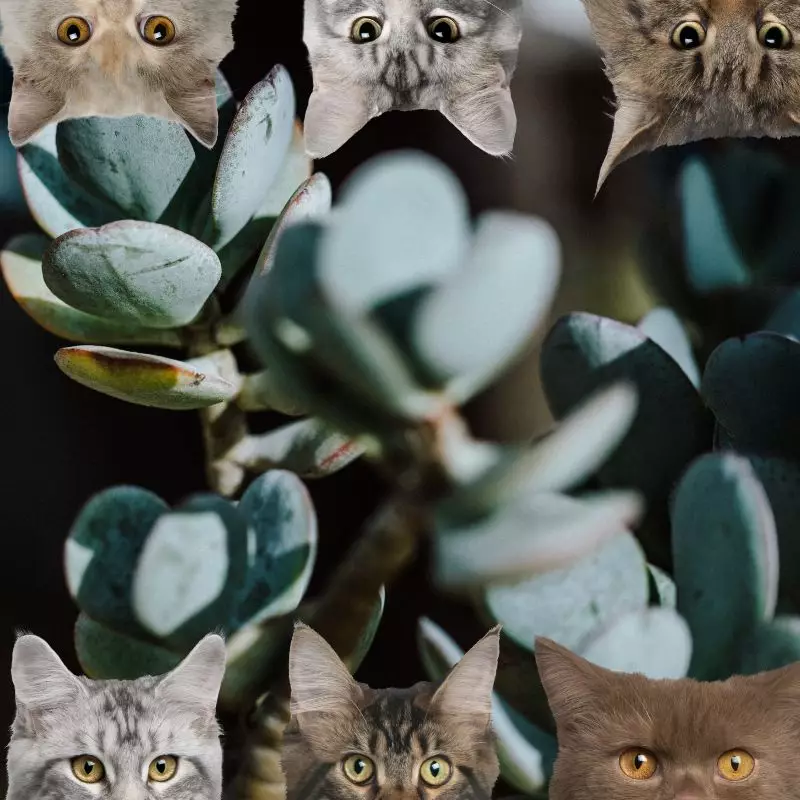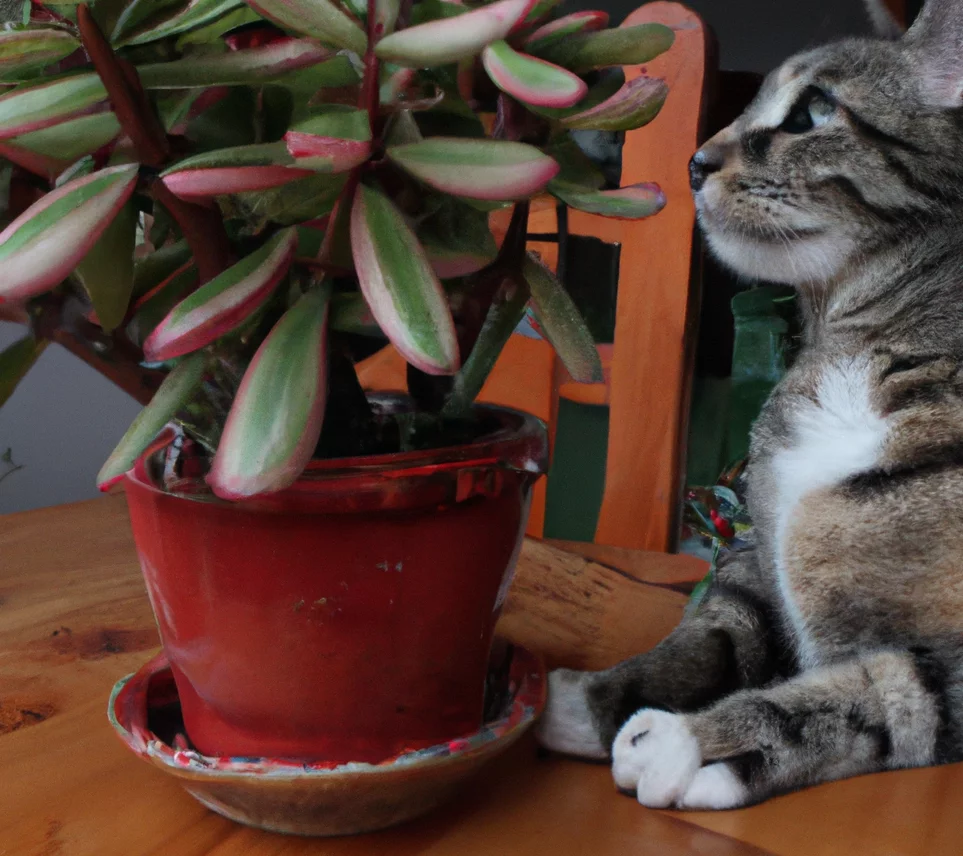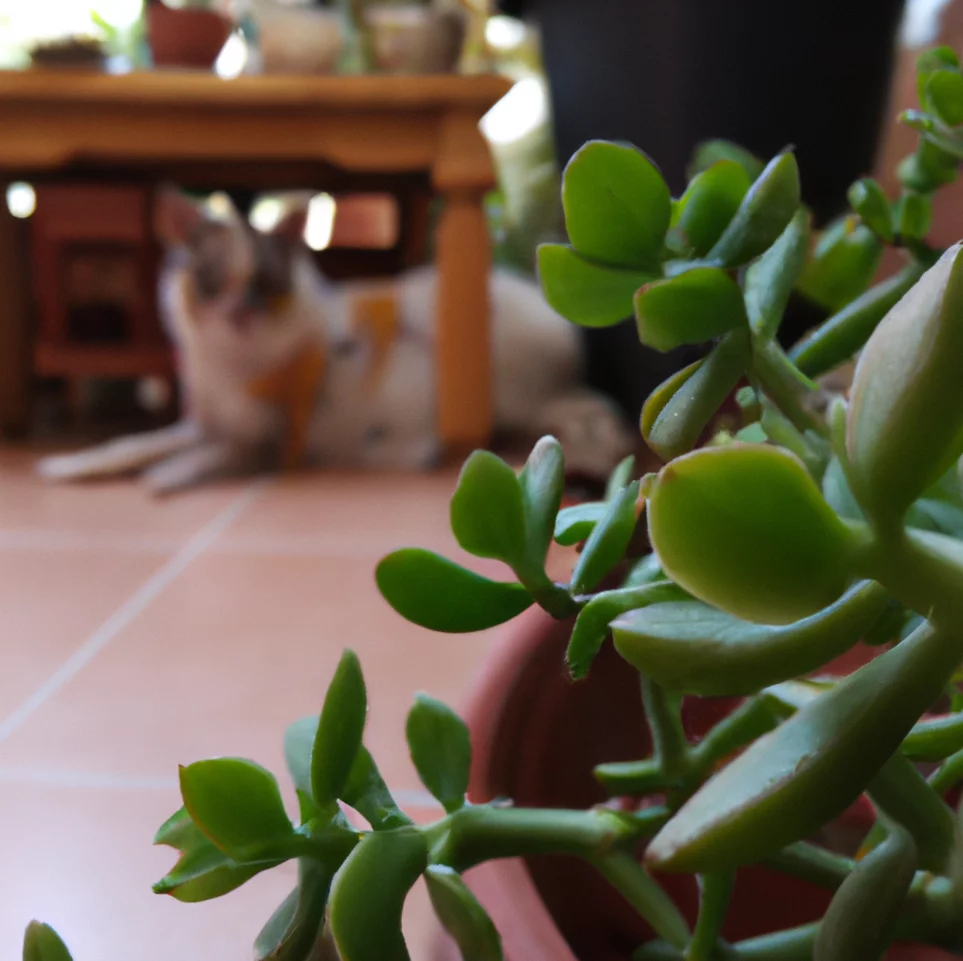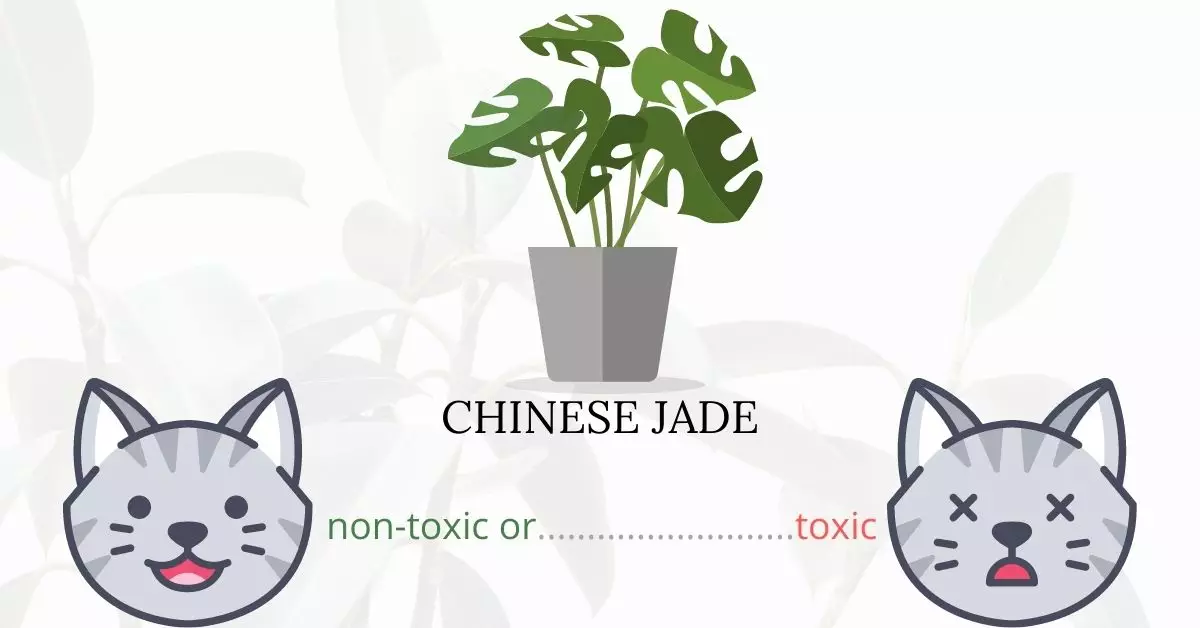Yes, Chinese Jade, also known as the Silver Jade Plant or Silver Dollar, is indeed toxic to cats. It’s essential for cat owners to be aware of this to ensure the safety and well-being of their pets.
This article was written in close collaboration with a team of experienced DVMs (doctors of veterinary medicine). Thanks to their expertise, we can provide precise and current information about the potential risks of various plants, focusing on Chinese Jade in this instance, and their effects on felines. Additionally, we have consulted high-authority websites such as the ASPCA and PetMD to ensure the accuracy of our findings.
The exact toxic compounds in Chinese Jade are not yet identified, but the symptoms it induces in cats are consistent with poisoning from other toxic plants.
Clinical Signs of Chinese Jade Poisoning in Cats

If your cat has come into contact with, inhaled, or ingested the Chinese Jade plant, they may exhibit specific clinical signs related to the toxic elements of the plant. While the exact toxic compounds in Chinese Jade are not fully understood, the symptoms they induce are indicative of poisoning:
- Vomiting: This is a natural reflex action by the body to rid itself of ingested toxins. If a cat eats the Chinese Jade plant, its gastrointestinal system can become irritated, leading to vomiting as it tries to expel the harmful substances.
- Depression: Exposure to the toxins in the Chinese Jade plant may impact the cat’s central nervous system, leading to lethargy or a noticeable decrease in activity and enthusiasm.
- Tremors (in rare cases): These can be a result of neurological effects that some toxins can have on a cat’s body. Tremors might arise from the disruption of normal nerve functions or reactions to the distress caused by other symptoms.
If you suspect your cat has been exposed to Chinese Jade, it’s crucial to seek veterinary assistance immediately. While the symptoms might resemble those from other toxic plants, confirming the source of poisoning can assist in targeted and efficient treatment. Taking a sample of the suspected plant to the veterinarian can aid in quicker diagnosis and more effective care.
First Aid and Treatment of Chinese Jade Poisoning in Cats

To treat Chinese jade poisoning in cats, the plant must be removed from the cat to avoid additional consumption and the poisons must be removed from the cat’s body. An emetic medicine will be given to stimulate the cat to vomit in order to expel the undigested poison from its stomach. If your cat hasn’t vomited, the veterinarian will most likely give him activated charcoal. The harmful substance will bind with activated charcoal, preventing the body from absorbing any more of the plant’s compounds. Intravenous fluid may be also administered particularly for cats experiencing severe vomiting.
Recovery from Chinese Jade Poisoning in Cats

If the amount of Chinese jade plant consumed by your cat is only minimal, he or she will fully recover fast. In case of large consumption, he or she may be admitted to the veterinary facility for further observation. Discuss post-treatment care with the veterinarian and ensure to follow his instructions for your cat’s wellness.
Prevention of Chinese Jade Poisoning in Cats
It is not advisable to grow Chinese jade if you are living with cats but if it is unavoidable, put your Chinese jade plant somewhere that your cat cannot access. If your cat was exposed to Chinese jade somewhere in your neighborhood, restrict your cat’s activities outdoors by keeping him or her entertained and engaged indoors.
If you love plants but have cats at home, check out these lists:





